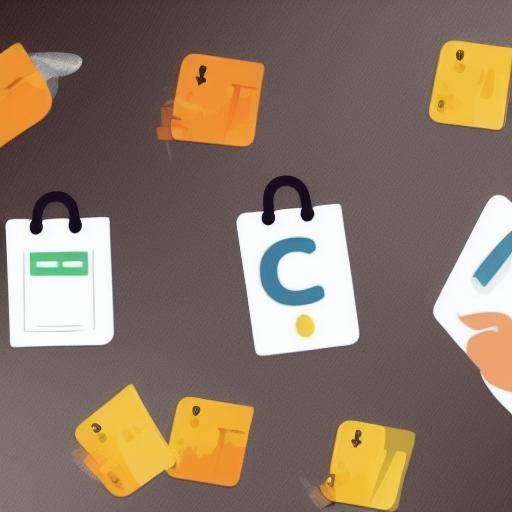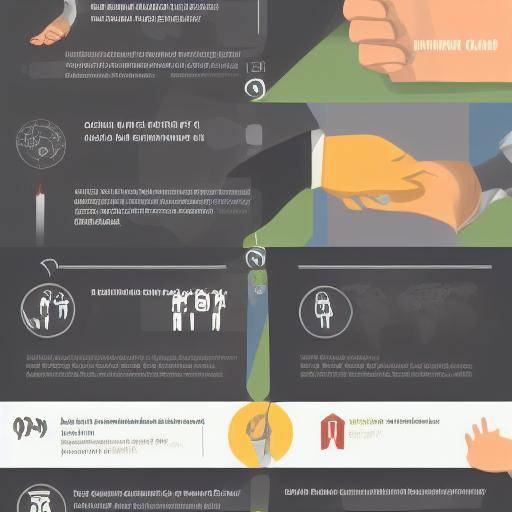
In the era of electronic commerce and the wide availability of products, it is essential to be able to identify quality products before making a purchase. The evaluation of quality and control of products are key aspects to ensuring consumer satisfaction and avoiding disappointments. In this article, we will explore effective strategies to identify quality products, from assessing the manufacturer's reputation to understanding quality and control standards. At the end of this article, you will be equipped with the knowledge necessary to make informed decisions when making purchases of products of all kinds.
Evaluation: The Key to Identify Quality Products
Product evaluation is a crucial process that allows consumers to understand the quality and performance of a product before making a purchase. There are various strategies that consumers can use to evaluate the quality of a product, either in physical or online stores.
Exhaustive Research Before Buying
Before buying a product, thorough research is essential. Read reviews from other consumers about the product you're considering to get a realistic perspective on its quality. Consider both positive and negative reviews to form a balanced opinion.
Verification of the Reputation of the Manufacturer
The manufacturer's reputation is an important indicator of the quality of a product. Investigate the history and background of the manufacturer. Firms with strong reputations often offer higher quality products and are more likely to provide good customer service in case of problems.
Specification Analysis and Certifications
When evaluating the quality of a product, it is vital to review the technical specifications and quality certifications you may possess. Quality certifications, such as ISO or industry-recognized accreditations, provide guarantees on the reliability of the product.
Quality: Standards and Considerations
The quality of a product is an essential component for consumer satisfaction. Understanding quality standards and knowing how to identify them can make a difference when making a purchase.
Knowledge of Industrial Standards
Familiarizing with quality standards in the specific industry to which the product belongs is fundamental. For example, standards for electronic products may differ from standards for food products. By understanding these standards, consumers can more accurately evaluate the quality of a product.
Visual and Tactile Inspection
Sometimes a simple visual and touch inspection of the product can reveal a lot about its quality. Be sure to check the materials, assembly and finishes. High quality products often show attention to detail and a sense of solidity and durability.
Consumer Experiences and Recommendations
Find recommendations from friends, family or online trusted communities. The experiences of other consumers can provide valuable information about the quality of a product and help you avoid disappointments.
Control: Ensuring Product Quality
Quality control is a set of measures that ensure that a product meets certain standards before being marketed. Understanding how quality control is carried out can provide consumers with a clearer view of the reliability of the product they are considering.
Ensuring Standard Compliance
Quality products are often subjected to rigorous quality testing during the manufacturing process. Find out if the manufacturer performs quality testing and control in its products and if they meet specific industry standards.
Guarantees and Return Policy
Guarantees and return policies are another crucial aspect of quality control. Manufacturers and retailers offering solid guarantees and flexible return policies often have more confidence in the quality of their products.
Research on Manufacturing Processes
Understanding product manufacturing processes can provide information on the level of quality control being implemented. Well-managed manufacturing processes tend to result in higher quality products.
Conclusion
Identifying quality products before buying is essential to guarantee consumer satisfaction and make informed purchases. By using evaluation strategies, quality understanding and product control, consumers can minimize the risk of acquiring low-quality products. Exhaustive research, the verification of the manufacturer's reputation, the knowledge of quality standards and the understanding of quality control are key skills to identify quality products. By following these strategies, consumers can make safer purchase decisions and enjoy products that meet their needs and expectations.
Frequently asked questions
How can I evaluate the quality of an online product if I cannot physically see it?
When evaluating the quality of an online product, make the most of the reviews of other buyers and look for reliable websites that provide detailed information about the product. It also considers the reputation of the seller and the return policies in case of dissatisfaction.
Why is it important to investigate the manufacturer's reputation when buying a product?
The manufacturer's reputation can provide valuable information on the quality and reliability of the product. Manufacturers with solid reputations often place greater emphasis on the quality of their products and customer satisfaction.
What are some quality certifications that I should pay attention to when buying a product?
Some important quality certifications include ISO 9001 (quality management), ISO 14001 (environmental management) and industry-specific certifications such as FDA for food products or CE for electronic products.
How do I know if a product has gone through strict quality controls?
Find information about product quality manufacturing and control processes. Transparent manufacturers often provide details of quality tests and controls to which they submit their products before marketing them.
How do guarantee and return policies reflect the quality of a product?
Solid guarantees and flexible return policies suggest that the manufacturer or retailer has confidence in the quality of their products. These guarantees also provide consumers with protection in case of defective or unsatisfactory products.
What is the best way to understand quality standards in a specific industry?
Research quality standards through reliable sources such as industry regulators, professional associations and recognized technical guides. Understanding specific quality standards will help you evaluate the quality of products within that industry.
Conclusion
The ability to identify quality products before purchasing is critical for conscious consumers. Evaluation, quality understanding and product control are crucial tools for making informed decisions when making purchases. By employing effective strategies such as thorough research, knowledge of quality standards and understanding of quality control, consumers can ensure the acquisition of products that meet their expectations. Like in other areas of life, knowledge is power when it comes to making successful purchase decisions.






















































